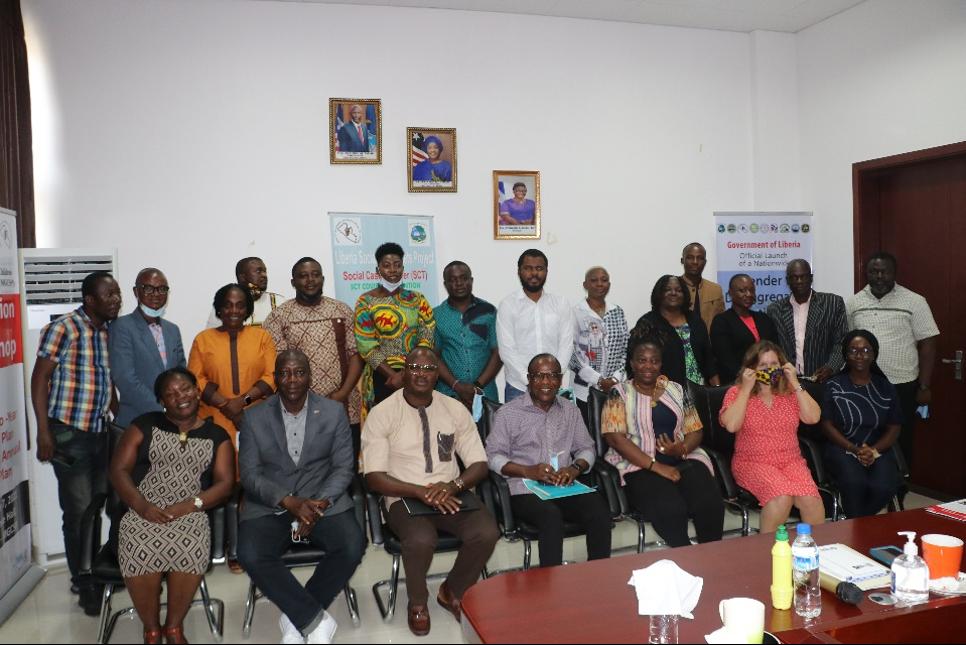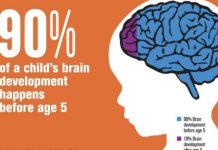Africa-Press – Liberia. The Ministry of Gender Children and Social Protection is leading the process to update and redesign the National Social Protection Strategy and Policy, which has expired since 2019.
The policy discussion which included nine government institutions and a host of local and International partners in the Social Protection sector, was led by the Minister of Gender Children and Social Protection, who chairs the National Social Protection Steering Committee.
The Nine member committee includes the Ministry of Gender Children and Social Protection (MGCSP) Chair, Ministry of Health (MOH), Ministry of Education (MOE), Ministry of Agriculture (MOA), Ministry of Finance and Development Planning (MFDP), Ministry of Internal Affairs (MIA), Ministry of Youth and Sports MYS), National Social Security and Welfare Corporation (NASCORP) and the Liberia Agency for Community Empowerment (LACE).
Making an opening remark during the meeting, the Liberian Minister of Gender, Children and Social Protection Williametta E. Saydee-Tarr lauded her colleagues for their interest in the policy discussion, and specifically pointed out that “it is on this government as a responsibility, to left its citizens out of extreme poverty, and strengthen protection for the vulnerable”.
She also noted, “As a Ministry, we have continue to make stride along with our partners, in delivering cash transfers to more than three thousand extremely poor beneficiaries in Maryland and Grand Kru Counties, with efforts to expand in Bomi and River Gee County soon. We have also successfully delivered cash to 15 thousand households in urban Montserrado County, as part of the Ministry’s COVID-19 intervention”.
Emphasizing on the sole objective of the Pro Poor Agenda for Prosperity and Development (PAPD), Minister Tarr also outlined that ‘government remains committed to upholding Pillar one of the PAPD-Power to the People, which defines specific national Social Protection interventions to reduce poverty, and encourage citizens’ empowerment”.
The Ministry of Gender, Children and Social Protection through the Liberia Household Social Registry, has completed the Management Information System (MIS), which will help better coordinate the sector. “The MIS will contain vital data for social protection interventions throughout the country. We urge our partners to make use of the system, which is a host to all of what we need”. Minister Tarr added.
Page 25 of the PAPD exerts under PILLAR ONE, “The highest level of poverty is found among households headed by the elderly persons (60+). Slightly more than 60 percent live in absolute poverty, 48 percent in food poverty, while 22.2 percent live in extreme poverty. As a majority of the elderly have never worked in the formal sector, they are not likely to be vested in any pension scheme that provide some form of income security. Liberia does not have universal statutory social security for its elderly people. The only form of old-age protection available is the contributory national pension scheme for the wage-earning population. Under the current eligibility criteria, no more than 300,000 persons would qualify”.
Also in separate remarks during the National Social Protection Steering Committee Meeting over the weekend, Youth and Sports Minister D. Zeogar Wilson emphasized coordination in the Social Protection sector, for result oriented programs. He said, “Under our recently concluded Youth Opportunity Project (YOP), we were able to help in transforming the lives of thousands of young people who were direct beneficiaries of the project.
We have now transitioned from YOP to REALISE, targeting close to 20 thousand vulnerable people under the new initiative, sponsor by the World Bank and other partners”. Minister Wilson noted, “REALISE will not only cater for young people, but a sizable number of the vulnerable population, which is our ultimate goal”.
For his part, the Deputy Director General of the National Social Security and Welfare Corporation Nyan Twayen said, “ We need to bring all of the various Social Protection projects to a point where government is able to better coordinate and track spending in the sector”.
On efforts to produce an updated and redesigned National Social Protection Policy and Strategy, the National Social Protection Coordinator and head of the Liberia Social Safety Nets Project (LSSN) Aurelius Butler stressed the importance of producing a policy and strategy that meet current national realities. “It has been three years since our existing National Social Protection Policy and Strategy expired, which places us in a situation of not being free to jump into many things. As stated earlier by Minister Tarr, we are going to immediately hire a local consultant to begin the collection of fresh data to have our Social Protection Policy and Strategy updated with current realities”.
He also averred “an updated Social Protection Strategy and Policy will assist the Government in translating its commitment to providing for state interventions that will address vulnerability and reduce poverty”.
Currently, social protection funding is being provided by our development partners, and therefore there is an urgent need to mobilize national budgetary resources for this Sector. Therefore, I believe this strategy will be key in assisting us achieve this objective.
Under the existing Policy and Strategy, five years strategic priorities were layout for implementation: Progressive expansion of the “unconditional Social Cash Transfer” providing minimum income security to at least 25% of extreme poor households.
• Expand school feeding as a national program with appropriate budget supports and measures for improving education and nutritional outcomes for low income households.
• Continue to support fee waivers for universal access to essential basic services, especially for health and education.
• Assess the appropriateness and feasibility of alternative social protection instruments and targeting options which more effectively and equitably target the poorest and most vulnerable groups. Effective and equitable targeting will include long term child and old age benefits and disability grants growing out of the Social Cash Transfer as soon as capacity and systems allow.






